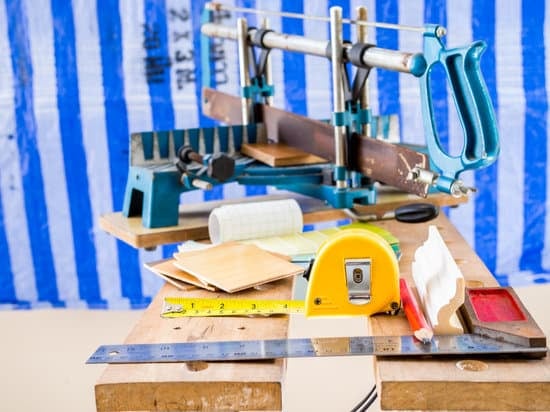What is the commission on home improvement estimator? When it comes to planning a home improvement project, one crucial aspect to consider is the role of a home improvement estimator and how their commission is determined. Home improvement estimators play a vital role in estimating the cost of a project accurately, helping homeowners and contractors plan and budget effectively.
A home improvement estimator is responsible for assessing the scope of work required for a project, calculating material and labor costs, and providing accurate estimates to clients or employers. Their expertise in cost estimation is essential for ensuring that projects are completed within budget and meeting quality standards. Determining their commission is important as it incentivizes them to provide precise estimates while also compensating them fairly for their work.
Accurate home improvement estimates are critical for the success of any project. They help stakeholders avoid unexpected costs, prevent delays, and ensure that resources are utilized efficiently. By understanding the commission structure for home improvement estimators, clients and employers can assess the value of their services and make informed decisions when hiring or negotiating with them.
What Is a Home Improvement Estimator
A home improvement estimator plays a crucial role in the construction and renovation industry by determining the cost of a project before any work begins. Their primary responsibility is to accurately estimate the expenses involved in a home improvement project, including materials, labor, permits, and other related costs. This information helps clients, contractors, and homeowners make informed decisions about the feasibility and scope of their projects.
To effectively carry out their duties, home improvement estimators need to possess a diverse set of skills. They must have a strong understanding of construction methods and materials, as well as knowledge of building codes and regulations. Estimators also utilize specialized software and tools to create cost estimates based on project specifications and blueprints. Additionally, excellent communication skills are essential for discussing estimates with clients, negotiating prices with vendors, and collaborating with construction teams.
In addition to providing accurate cost assessments, home improvement estimators may also be involved in creating project timelines, coordinating subcontractors, and overseeing budget management throughout the duration of a construction project. Their ability to forecast potential expenses accurately can significantly impact the overall success of a project and help mitigate financial risks for all parties involved. As such, home improvement estimators play a vital role in ensuring that renovations or constructions are completed within budget and on schedule.
Importance of Accurate Estimates
Accurate estimates are fundamental to ensuring the success of any home improvement project. Whether it’s a simple renovation or a major overhaul, having precise cost estimates can make all the difference in meeting budget targets, avoiding costly surprises, and ultimately delivering a satisfactory outcome for both clients and contractors. In this section, we will delve into the crucial role that accurate estimates play in the realm of home improvement projects.
Ensuring Budget Adherence
One of the primary reasons why accurate estimates are essential for project success is because they help in ensuring adherence to budgets. A well-prepared estimate provides a clear breakdown of anticipated costs, allowing clients to plan their finances accordingly and preventing any unwelcome financial strain down the line. On the contractor’s end, accurate estimates help in managing resources efficiently and avoiding potential losses due to underquoting or overspending.
Building Trust and Credibility
Accurate estimates also play a significant role in building trust and credibility between clients and home improvement professionals. When clients receive reliable cost projections that align with the actual expenses incurred during the project, it reinforces their confidence in the contractor’s expertise and transparency. This trust is invaluable in fostering long-term relationships and securing repeat business or referrals, which are essential for maintaining a thriving home improvement business.
Project Planning and Timely Completion
Furthermore, accurate estimates facilitate effective project planning and timely completion. With detailed cost breakdowns in place, contractors can allocate resources efficiently, streamline workflow processes, and prevent delays caused by unforeseen budget constraints or material shortages.
By having a solid grasp of what each phase of the project entails financially, contractors can better anticipate potential challenges, adjust timelines accordingly, and deliver projects within stipulated deadlines. Ultimately, accurate estimates contribute to smoother project execution and overall client satisfaction-a win-win scenario for all parties involved.
Commission Structure
Understanding Commission for Home Improvement Estimators
Home improvement estimators play a crucial role in the construction industry by providing accurate cost estimates for projects. Their commission is a key aspect of their compensation structure, motivating them to accurately assess the materials, labor, and other expenses involved in a project. Commission rates can vary depending on the employer, the scope of work, and other factors, making it essential for home improvement estimators to understand how their commission is calculated.
How Commission Is Calculated
The commission structure for home improvement estimators can be based on different models. Some employers may offer a flat rate commission for each estimate prepared, while others may provide a percentage-based commission tied to the total project cost.
In some cases, home improvement estimators may also receive bonuses or incentives based on meeting certain targets or achieving cost savings on projects. Understanding how commission is calculated is important for home improvement estimators to gauge their potential earnings and negotiate fair compensation.
Considerations for Commission Rates
Factors that can influence the commission rates for home improvement estimators include their level of experience, the complexity of projects they work on, market conditions, and competition in the industry. Experienced estimators with a proven track record of producing accurate estimates may command higher commission rates than those who are just starting out in the field.
Additionally, specialized skills or certifications in areas such as green building practices or energy efficiency could also impact commission rates. It is important for home improvement estimators to consider these factors when negotiating their commission with clients or employers.
Factors Affecting Commission
When it comes to determining the commission for home improvement estimators, there are several factors that can influence the rates offered. Understanding these factors is crucial for both estimators and clients to ensure a fair compensation structure and successful project outcomes. Here are some key factors to consider:
- Experience and Expertise: Experienced home improvement estimators with a proven track record of accurate estimates may command higher commission rates compared to those who are just starting out in the field.
- Project Complexity: The complexity of the home improvement project can also impact the commission rates. Projects that require detailed measurements, specialized materials, or unique design elements may justify higher commissions for estimators.
- Market Demand: The demand for home improvement services in a particular area can affect commission rates. In competitive markets where skilled estimators are in high demand, they may be able to negotiate higher commissions.
In addition to these factors, the reputation of the estimator, the scope of services provided, and the overall budget of the project can all play a role in determining commission rates. It is important for both parties to discuss and agree upon a fair commission structure that reflects the value of the estimator’s work while also aligning with market standards.
Ultimately, by taking into account these various factors that can influence commission rates, home improvement estimators can ensure they are compensated fairly for their expertise and contribution to successful projects. Clients can also benefit from understanding how these factors impact costs and ultimately quality when hiring a home improvement estimator. Communication and transparency around commission rates are key to building trust and successful partnerships in the home improvement industry.
Average Commission Rates
Home improvement estimators play a crucial role in the construction industry by providing accurate cost estimates for remodeling or renovation projects. Their expertise is essential in ensuring that projects stay within budget and are completed successfully. One key aspect that often comes into question is the commission structure for these estimators. So, what is the commission on home improvement estimator?
The commission on home improvement estimators can vary depending on several factors such as the scope of the project, the complexity of the work involved, and the experience level of the estimator. Typically, commissions are calculated based on a percentage of the total project cost estimated by the home improvement estimator. This percentage can range anywhere from 1% to 5% or even higher in some cases.
To give a clearer picture, let’s take a look at some average commission rates in the home improvement industry. According to industry standards, home improvement estimators can expect to earn around 2-3% of the total project cost as their commission. However, this rate can fluctuate based on individual agreements between the estimator and their client or employer. It’s essential for estimators to negotiate their commission rates effectively to ensure fair compensation for their services.
Now that we have shed some light on what the commission on home improvement estimator entails and discussed average commission rates in the industry, it’s evident that understanding how commission works is vital for these professionals. By having a clear grasp of how their compensation is structured, home improvement estimators can ensure they are fairly compensated for their expertise and efforts in delivering accurate project estimates.
Negotiating Commission
As a home improvement estimator, understanding how to negotiate your commission rates is essential in maximizing your earnings. When discussing your commission with clients or employers, it is crucial to highlight the value you bring to the table through your accurate estimates and expertise.
Clearly communicate how your estimates can save time and money by preventing costly mistakes or delays during the project. Emphasize the importance of investing in an experienced estimator like yourself to ensure the success of the home improvement project.
In negotiations, be prepared to provide examples of past projects where your accurate estimates have resulted in cost savings or efficiency improvements. This data-driven approach can help demonstrate the tangible benefits of working with you as a home improvement estimator.
Additionally, consider offering flexible payment structures or incentives based on project milestones or outcomes. By tailoring your commission proposal to align with the client’s or employer’s needs, you can increase the chances of reaching a mutually beneficial agreement.
When negotiating commission rates as a home improvement estimator, remember that transparency and communication are key. Be open to discussing how your commission is calculated and what factors may influence it based on the scope and complexity of the project. By building trust and fostering clear communication throughout the negotiation process, you can establish a solid foundation for successful collaborations in the future.
| Tips for Negotiating Commission | Benefits |
|---|---|
| Highlight your expertise and value | Demonstrates importance of experienced estimators |
| Provide examples of cost-saving estimates | Evidence of past successful projects |
| Offer flexible payment structures | Aligning with client’s needs for mutual benefit |
Conclusion
In conclusion, understanding the commission structure for home improvement estimators is essential in ensuring fair compensation for their valuable work. Home improvement estimators play a crucial role in the success of any project by providing accurate cost estimates that inform decision-making and budgeting. By knowing how their commission is calculated and being aware of the factors that can influence it, estimators can negotiate fair rates that reflect the value they bring to the table.
Accurate estimates are the foundation of a successful home improvement project, as they help prevent cost overruns, delays, and disputes between parties involved. By incentivizing estimators through a fair commission structure, clients and employers can encourage them to provide thorough and precise estimates that set realistic expectations for all stakeholders. Negotiating commission rates with transparency and professionalism can lead to mutually beneficial agreements that recognize the expertise and effort put forth by home improvement estimators.
In today’s competitive home improvement industry, where accuracy and efficiency are paramount, understanding what constitutes a fair commission for home improvement estimators is key to maintaining job satisfaction and fostering trust with clients or employers. By recognizing the value of their expertise in generating reliable cost projections, businesses can ensure smooth project execution and customer satisfaction. Ultimately, a well-informed approach to commission structures benefits both parties involved in the estimation process and contributes to overall project success.
Frequently Asked Questions
How Do You Calculate Agent Commission?
Agent commission is typically calculated as a percentage of the final sale price of a property. This percentage can vary depending on the agreement between the agent and the client. To calculate the agent’s commission, multiply the agreed-upon percentage by the final sale price.
How Do You Calculate Commission Rate?
Commission rate is calculated by determining what percentage of the final sale price will be paid out as commission. The commission rate is usually negotiated between the real estate agent and their client before any transactions take place. It is important to clearly define this rate in writing to avoid any disputes later on.
How Brokerage Is Calculated in Real Estate?
Brokerage in real estate is calculated based on a pre-agreed commission split between the brokerage firm and the individual agents. Typically, agents will have to share a portion of their earned commissions with their brokerage as part of their agreement.
This split can vary depending on different factors such as experience, level of support provided by the brokerage, and local market conditions.

I’m thrilled to have you here as a part of the Remodeling Top community. This is where my journey as an architect and remodeling enthusiast intersects with your passion for transforming houses into dream homes.





